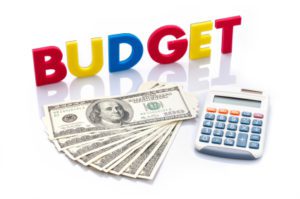
The law amending the law on automobile roads regarding the audit of road safety will open access to better financing of road construction by international financial institution (IFIs) for Ukraine, Senior Sector Engineer of the European Investment Bank (EIB) Per Mathiasen said at a press conference devoted to the results of the EIB Implementation Support to the Ukraine Urban Road Safety Project in Kyiv on Tuesday.
The European Investment Bank, the World Bank, the European Bank for Reconstruction and Development, all of them stress the importance of road safety, he said.
Mathiasen said that Ukraine needed to change the construction of roads for the safety of road users.
The new law will ensure that safety will become an integral part of the design and planning of new roads, he said.
In addition, according to Mathiasen, the law will make new roads safe and accessible for everyone: cars, cyclists and public transport.
In turn, Deputy Infrastructure Minister of Ukraine Natalia Forsiuk recalled that the government has set two key goals in the field of road infrastructure: “reducing travel time by 10% and reducing the number of traffic accidents by 30%.”
“That is, traffic safety is the only immediate priority of the government [in this area],” she said.
The main priority of the EIB Implementation Support to the Ukraine Urban Road Safety Project, which is funded by the Eastern Partnership Technical Assistance Trust Fund and implemented by Egis Ukraine, is the development of the law of Ukraine on automobile roads regarding the audit of road safety, preparation of technical documentation and boosting the capacity necessary to implement the road infrastructure safety management procedures and to promote the adoption of the law and its enforcement.
In order to implement this project, on October 17, 2019, the Verkhovna Rada of Ukraine adopted the law amending certain legislative acts of Ukraine on road safety management. The law contains most of the provisions of EU Directive 2008/96/EC on road infrastructure safety management, which is a version of the EU law on road infrastructure safety management procedures.
As reported, acting head of the State Automobile Roads Authority of Ukraine (Ukravtodor) Slawomir Nowak said that EBRD and EIB are ready to provide Ukraine with a targeted loan in the amount of EUR 900 million for the development of the road industry in 2020.
The level of road accidents in Ukraine is much higher than in EU countries.

Financing for the Education and Science Ministry of Ukraine increased by 14% in the draft national budget of Ukraine for 2020, prepared by the government for second reading, to UAH 131.483 billion, as compared with 2019, according to bill No. 2000 dated September 15 amended for second reading.
In particular, UAH 44.331 billion will be allocated for the apparatus of the Education and Science Ministry, of which UAH 134.9 million will be spent on management and administration in the spheres of education and science, UAH 107.6 million – on organization of work of the National Agency for Higher Education Quality Assurance, National Agency for Qualification, education ombudsman, state attestation and accreditation and educational institutions, UAH 200 million – on professional (vocational) training of national significance, and UAH 1.162 billion – on research and development at higher education establishments and scientific institutions.

President of Ukraine Volodymyr Zelensky has signed a bill No. 54-IX “On amendments into some legislative acts of Ukraine on the certain issues of implementation of the overall weight control,” which was adopted by the Verkhovna Rada on September 11, 2019, into law. “The document is meant to prevent premature destruction of the roads by overloaded vehicles, to reduce the cost of budget funds for their restoration, as well as to increase the level of road safety. It makes amendments to the Code of Ukraine on Administrative Offenses, the laws on sources of financing of the road facilities of Ukraine and on road transport,” a Press Office of the President reported.
According to the document, a violation of the rules for driving large and heavy vehicles on roads, streets or level crossings is punished by a fine of 500 tax-free minimum incomes of citizens if the overall weight and weight standards are exceeded by 5-10%. If these standards are exceeded by 10-20%, a fine in a sum of 1,000 non-taxable minimum incomes of citizens is imposed. Exceeding the overall weight and weight standards by more than 20% provides for a fine of 2,000 tax-free minimum incomes of citizens.
In addition, the head of state signed bill No. 74-IX “On amendments to the Budget Code of Ukraine regarding the sources that set up the state road fund,” which was adopted by parliament on September 12, into law.
According to law, Budget Code of Ukraine envisages transfer to the state road fund of 50% of revenues from administrative fines for violation of the legislation on road transport if exceeding the overall weight and weight norms stipulated by legislation and 50% of revenues of administrative fines for violation of the rules for movements of bulky and heavy vehicles on roads, streets or level crossings.
The President’s Office noted that the entry into force of the law would allow raising additional resources to finance the road industry and introducing measures to ensure road safety.

A project foreseeing the possible provision of EUR 100 million to Myronivsky Hliboproduct (MHP, Ukraine) agricultural company by the European Bank for Reconstruction and Development (EBRD) requires review, EBRD Senior Advisor on External Affairs Anton Usov has told Interfax-Ukraine.
“Some media reports that the EBRD allegedly rejected this project are not true. It was not even submitted to the board of directors for consideration,” he said on Thursday.
Usov said that the new date for its consideration by the bank’s directors will be announced additionally.
As reported, in January 2019, the EBRD said that in March 2019 its directors could consider the issue of providing EUR 100 million to MHP to acquire Slovenia’s Perutnina Ptuj.
In November 2018 MHP signed an agreement to acquire a 90.68% stake in Slovenia’s Perutnina Ptuj, a vertically integrated company in Southeastern Europe.

Norway’s NBT and France’s Total Eren have finalized an agreement on the second phase of the project financing of construction of the 250 MW Syvash wind farm (Kherson region) in the amount of EUR 107.6 million, INTEGRITES law firm, which advised the companies, has said in a press release. According to the law firm, this financing agreement was signed with a syndicate of development banks including Black Sea Trade and Development Bank (EUR 30 million), Proparco (ca. EUR 42 million), Finnfund and IFU (EUR 15 million each), and the Nordic Environment Finance Corporation (NEFCO) (EUR 5 million).
All in all, the financing put into place for the whole project reaches EUR 262.6 million. The first phase of financing included a loan of up to EUR 155 million led by EBRD. EBRD’s loan consisted of EUR 75 million, Green for Growth Fund (GGF) and the Netherlands Development Finance Company (FMO) provided EUR 75 million, while a parallel loan of EUR 5 million was provided by the Nordic Environment Finance Corporation (NEFCO).
In addition, AlGihaz, a Saudi Arabian conglomerate, recently took a minority stake in the project alongside Total Eren.
INTEGRITES has advised NBT and Total Eren on all issues within Ukrainian law. In particular, INTEGRITES’ advise included negotiations with the abovementioned international banks, support on the local statutory requirements and communication of project related matters with the National Bank of Ukraine.
“We welcome the closing of the first large-scale project finance in renewable energy In Ukraine. Signing of the second segment with four new international financial institutions and one new co-shareholder on board speaks for the quality of the project and continuing high interest of foreign investors, making a great contribution to increasing of investment into Ukraine,” Managing Partner at INTEGRITES Oleksiy Feliv said.

The volume of state financing of the rocket and space industry of Ukraine in 2019 should amount to UAH 2.13 billion, which is 14% less compared to 2018. These parameters are stipulated in the country’s main financial law for 2019, which has been posted on the Verkhovna Rada’s website. State financing for the space industry from the general fund of the national budget of 2019 will amount to UAH 2.12 billion (99.5% of the budget).
In the total amount of funding for the industry through the general fund, UAH 1.47 billion (69% of the industry budget) should be used for servicing debt obligations on the loan raised under state guarantees for the implementation of the project “Creating the National Satellite Communications System.” In 2018, some UAH 1.55 billion (62.5%) was foreseen for this purpose.
Some UAH 78.5 million is foreseen for carrying out work on state targeted programs and government orders in the space industry in 2019, which is 9.8% less than in 2018, while UAH 344.8 million will be spent on management and testing space vehicles, or 14% less compared to 2018.